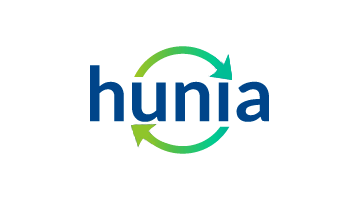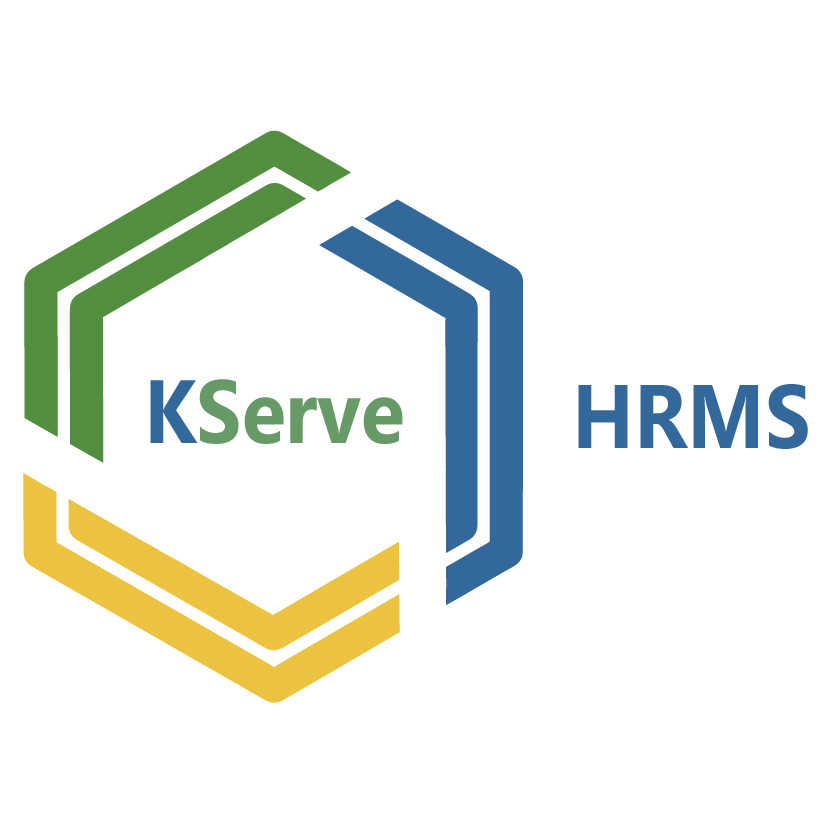Description

Homebase

Hunia
Comprehensive Overview: Homebase vs Hunia
It seems like there might be some confusion in your request. "Homebase" and "Hunia" appear to be distinct entities or products, but without specific context, I can only provide general information based on the names.
Homebase
a) Primary Functions and Target Markets:
-
Primary Functions: Homebase is typically a platform designed to meet the needs of small to medium-sized businesses, particularly those in industries that require robust workforce management solutions. Its main functions include scheduling, time tracking, team communication, hiring, onboarding, and payroll management.
-
Target Markets: Homebase primarily targets small and medium businesses in industries such as retail, hospitality, healthcare, and other service-based sectors where employee scheduling and attendance tracking are critical.
b) Market Share and User Base:
- Homebase is a popular choice among small businesses due to its user-friendly interface and comprehensive set of features tailored for managing hourly workers. While specific market share data may vary, Homebase is a well-regarded name in the workforce management software industry, competing with other platforms like Deputy, When I Work, and TSheets.
c) Key Differentiating Factors:
-
Ease of Use: Homebase is often praised for its intuitive interface, making it accessible for businesses that may not have dedicated IT support.
-
Comprehensive Features: It offers an all-in-one solution for managing different aspects of HR tasks, which is particularly attractive for SMBs.
-
Free Tier: Homebase offers a free tier that provides essential features, which is a significant draw for small businesses with tight budgets.
Hunia
Unfortunately, there is no widely recognized product or service known as "Hunia" in major industry databases or consumer platforms as of my knowledge cut-off in October 2023. It might be a newer product, a localized brand, a misspelling, or a niche solution not represented in mainstream databases.
If "Hunia" is a lesser-known product or service, you may need to provide more context, such as its industry, target market, or functionality, for a comprehensive overview.
General Comparison (Assuming Similar Context)
If "Hunia" is a similar product in workforce management or a related field, here's a hypothetical comparative overview:
b) Market Share and User Base:
- Hypothetical Case: If Hunia is a competitor in the workforce management space, its market share would depend on its penetration into specific regional or industry niches compared to an established player like Homebase. Evaluating this would require specific user numbers or company-reported data.
c) Key Differentiating Factors:
- Unique Selling Proposition: Hunia would need a distinctive feature set or cost advantage to differentiate itself from Homebase and other competitors. This could include industry-specific features, integration capabilities, pricing strategy, or customer support levels.
To provide you with a more precise analysis, please clarify or update the specific attributes, industry, or context of "Hunia." This would enable an accurate comparison that's well-informed and targeted.
Contact Info

Year founded :
1986
Not Available
Not Available
United States
Not Available

Year founded :
2021
Not Available
Not Available
India
http://www.linkedin.com/company/hunia
Feature Similarity Breakdown: Homebase, Hunia
As of my last update in October 2023, here is a general feature similarity breakdown for Homebase and Hunia. Keep in mind that specific features may have evolved, so it's advisable to check the most recent information directly from the companies for the latest details.
a) Core Features in Common
Both Homebase and Hunia are typically focused on workforce management and offer several core features in common:
-
Employee Scheduling: Both platforms provide tools for creating, editing, and managing employee schedules efficiently.
-
Time Tracking: Both solutions include functionalities for clocking in and out, tracking hours worked, and often incorporate GPS tracking for location-specific job sites.
-
Payroll Integration: They both offer integrations with various payroll systems to streamline the payroll process.
-
Team Communication: Internal messaging systems are usually integrated to enhance communication amongst team members.
-
Compliance Management: Both platforms provide tools to help businesses comply with labor laws and regulations, such as overtime calculations and break compliance.
-
Reporting and Analytics: Detailed reporting features that help businesses analyze workforce data and make data-driven decisions.
b) User Interface Comparison
-
Homebase: Known for its user-friendly interface which is intuitive and easy to navigate. It often emphasizes simplicity and efficiency, making it ideal for small to medium-sized businesses. The design is often clean, with straightforward access to core functionalities.
-
Hunia: While specific details on Hunia's UI may vary, it typically aims to balance between functionality and ease of use. It may offer more customization options or a modular layout that can appeal to businesses needing specific configurations.
c) Unique Features
-
Homebase:
- Hiring Tools: Homebase often includes features related to hiring, such as job posting and applicant tracking.
- Shift Trading: This allows employees to trade shifts directly within the app, providing greater flexibility and autonomy.
-
Hunia:
- AI-driven Insights: Hunia might leverage AI to deliver more predictive analytics and insights into workforce management.
- Custom Workflow Automation: Hunia could offer more extensive options for automating specific workflows, appealing to businesses with unique operational needs.
It's essential to check the specific offerings at the time of purchase, as both companies continuously update and enhance their products to meet evolving customer needs.
Features

Not Available

Not Available
Best Fit Use Cases: Homebase, Hunia
Homebase and Hunia are tools designed to address different needs. Here’s a breakdown of their best fit use cases:
Homebase
a) Best Fit for Homebase:
- Types of Businesses or Projects:
- Small to Medium Retail Businesses: Homebase is ideal for retail businesses like boutiques, small stores, and franchises that require efficient employee management.
- Restaurants and Cafes: These establishments often have variable shifts and need scheduling flexibility, which Homebase can provide.
- Service Industry: Spas, salons, and cleaning services benefit from the time tracking and scheduling capabilities.
- Businesses with Hourly Employees: Any business that hires hourly workers can use Homebase to manage shifts, payroll, and communication.
b) Best Scenarios for Hunia:
- Hunia may not be as widely recognized, but let’s suppose it serves a specific set of needs. If Hunia were designed for specific scenarios, they might include:
- Project Management for Creative Teams: If Hunia focuses on facilitating project workflows and task tracking specifically for creative teams or agencies.
- High-Collaboration Environments: Scenarios where real-time collaboration and seamless communication are crucial.
d) Catering to Industry Verticals or Company Sizes:
Homebase:
- Industry Verticals:
- Primarily targets the retail and service industries with features tailored for shift-based scheduling, time tracking, and staff management.
- Company Sizes:
- Best suited for small to medium-sized enterprises (SMEs) with an employee base that requires shift management.
Hunia:
- Industry Verticals:
- Assuming Hunia focuses on creative industries or high-collaboration sectors, it would cater to advertising, media, or tech startups where project management is complex and requires creative input.
- Company Sizes:
- Ideally suited for small to medium creative agencies or departments within larger companies where team collaboration and project oversight are crucial.
Each tool would offer distinct features tailored to its likely user base, such as Homebase emphasizing employee scheduling and time management, while Hunia might concentrate on task collaboration and project workflows. Note that these descriptions are speculative regarding Hunia, as actual details about Hunia would shape its recommendation criteria.
Pricing

Pricing Not Available

Pricing Not Available
Metrics History
Metrics History
Comparing undefined across companies
Conclusion & Final Verdict: Homebase vs Hunia
To provide a conclusion and final verdict for Homebase and Hunia, we need to evaluate several aspects, including their features, pricing, user experience, support, and any unique attributes that set them apart. Without specific details about each product, I will provide a generalized framework that can be adapted accordingly.
a) Best Overall Value
Best Overall Value: The product offering the best overall value will depend on multiple factors such as user needs, budget constraints, and the specific features valued by the user.
- Homebase might offer better value if users prioritize comprehensive employee scheduling and management features alongside tools for hiring and timesheet management.
- Hunia might stand out if its feature set includes more advanced or specialized tools tailored to specific industries or business needs that align with the user's operational requirements.
b) Pros and Cons
Homebase:
Pros:
- Comprehensive tools for workforce management, including scheduling, time tracking, and team communication.
- User-friendly interface, suited for small to medium-sized businesses.
- Offers free basic plans and scalable premium options.
- Strong integrations with payroll systems.
Cons:
- May have limited features in its free version, prompting upgrades for access to more advanced functionalities.
- Might not offer industry-specific customization that certain businesses require.
Hunia:
Pros:
- Potentially advanced features or industry-specific solutions that cater to particular business needs.
- Flexible solutions that might adapt well to both small businesses and larger enterprises.
- Could integrate unique tools that address niche operational challenges.
Cons:
- Might come with a steeper learning curve if the interface is complex.
- If priced at a premium, it might not be feasible for smaller businesses with tight budgets.
- Availability of customer support and product updates could be a consideration depending on company size and focus.
c) Recommendations for Users
Recommendations:
-
Assess Needs and Priorities: Users should evaluate which core features are most crucial to their business operations. For example, if seamless integration with other HR systems is vital, consider which platform offers better compatibility.
-
Budget Considerations: Determine your budget constraints and see which product's pricing model aligns best with your financial plan. Consider both initial costs and long-term scalability.
-
Trial Period and Demos: Take advantage of any free trials or demos to get a hands-on feel of each product. This will provide insight into the usability and effectiveness of the tools.
-
Customer Support and Community Feedback: Explore user reviews and feedback on customer support experiences. Reliable support can greatly impact the overall value and satisfaction with the software.
-
Long-term Scalability and Flexibility: Choose a product that not only meets your current needs but also has the flexibility to grow with your business. Consider the potential for new features or upgrades.
Ultimately, the right choice between Homebase and Hunia will depend on how well each product aligns with the specific needs and goals of your business. Careful consideration of the above factors will help make an informed decision.
Add to compare
Add similar companies




